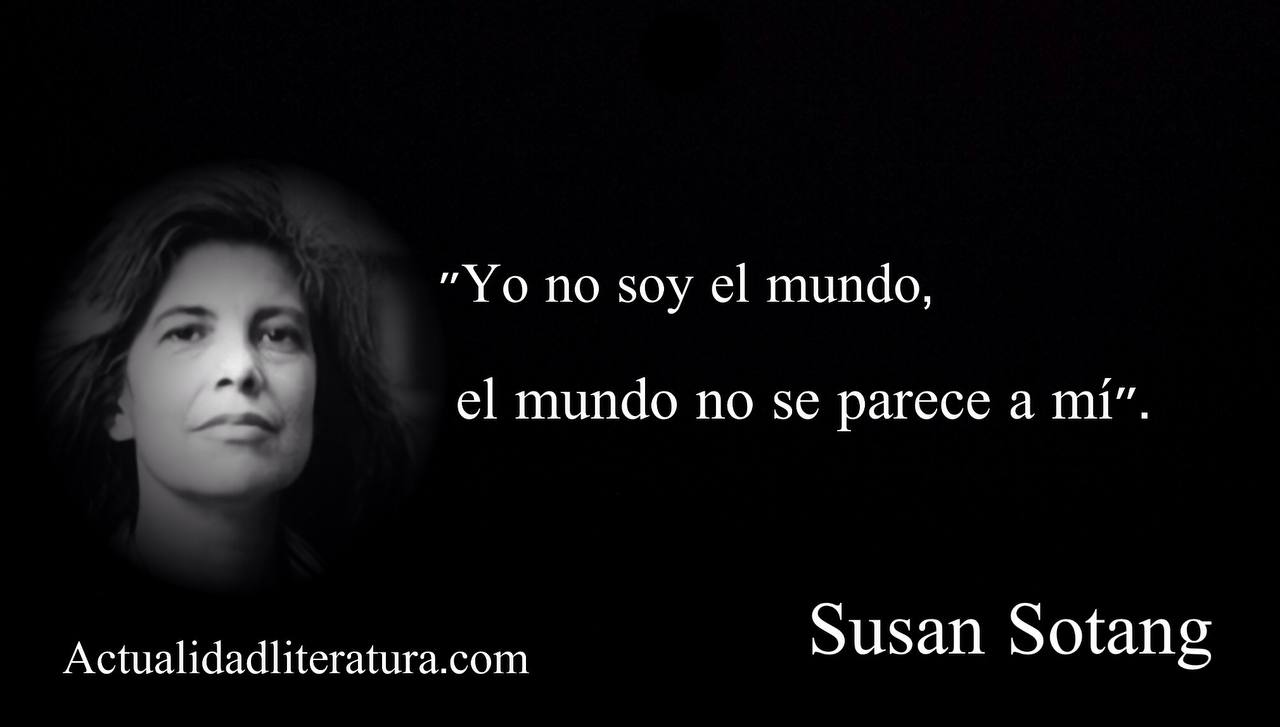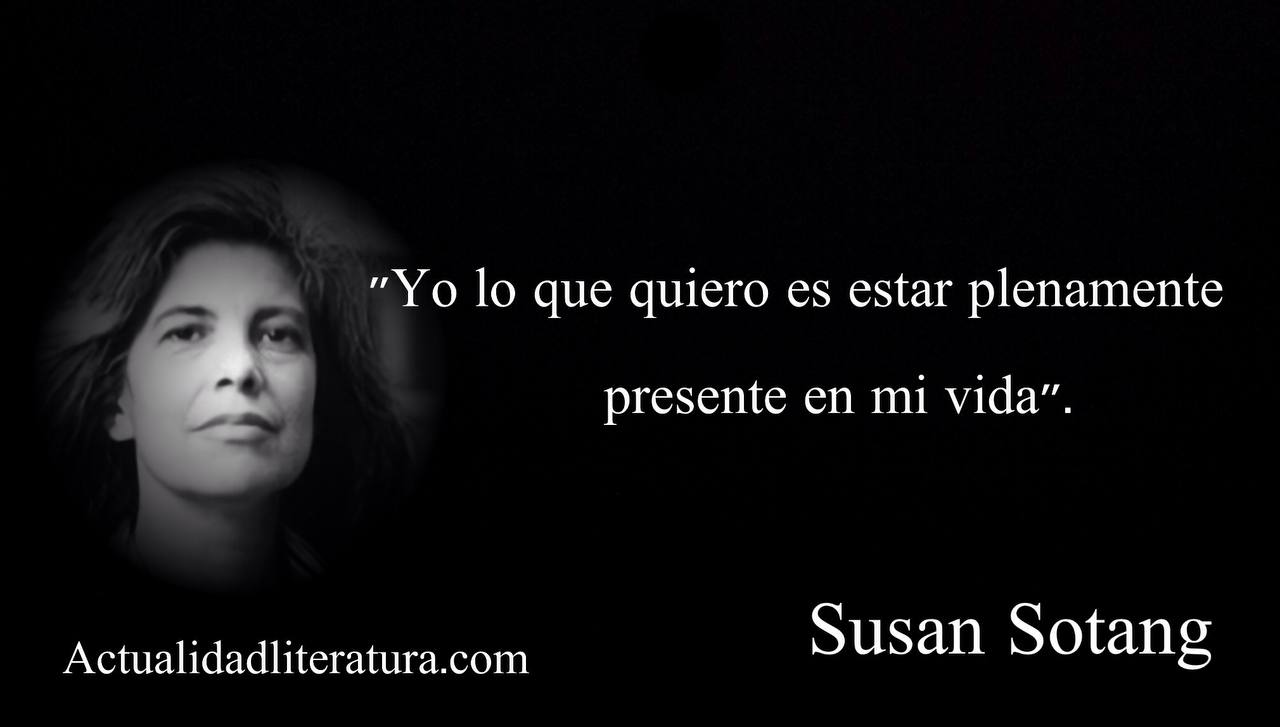
Susan Sotang Quote
In contemporary American culture there are few figures with such a successful career in different areas of artistic and literary production as Susan Sontag. Throughout her life, the prodigious New York intellectual of Jewish ancestry was a writer, philosopher, anti-war activist, film director, theater producer, screenwriter, and teacher.
Of course, Sontag's literary facet was the most recognized due to his novels, short stories, non-fiction texts and, especially, for his critical essays. Not in vain, his career was distinguished with the Jerusalem Prize for Literature (2001), the Prince of Asturias for Letters (shared, 2003) and the Peace Prize of the German Book Trade (2003).
Biography
Susan Sontag was born on January 16, 1933 in New York, NY, USA. She grew up in an American Jewish family headed by Jack Rosenblatt, a fur trader who died (of tuberculosis) in China in 1938. Consequently, she and her sister Judith changed their last name when their mother, Mildred Jacobsen, married Air Force Captain Nathan Sontag in 1945.
Studies and first jobs
Due to little Susan's asthma, the family was forced to move from New York to other cities with a warmer climate. The Sontag family first moved to Tucson, Arizona before settling in Los Angeles. Over there, He graduated from North Hollywood High School in 1948. He then began his higher education at the University of California at Berkeley.
In 1949, Sontag transferred to the University of Chicago, graduating with a Bachelor's degree in Philosophy (1951). Later, Sontag earned two master's degrees from Harvard University, English Literature (1954) and Philosophy (1955). Likewise, the American intellectual taught Philosophy in different houses of higher education —apart from the two already mentioned— such as the University of Paris and the University of Oxford.
Marriage and personal relationships
During his stay in Illinois, a 17-year-old Sontag married sociologist and cultural critic Phillip Rieff, after an idyll of only ten days. The union lasted eight years and had a son, David Rieff, who is currently a renowned political analyst, journalist and cultural critic. His next partner—between 1957 and 1958—was the writer and artist's model Harriet Sohmers.
Also, Sontag was a partner of the Cuban-American playwright María Irene Fornés. This relationship would be key for the formal initiation in the writing of both; in Susan's case, it coincided with the publication of The Benefactor (1963). Subsequently, the American writer maintained a courtship between the end of the 70s and the beginning of the 80s with the Russian poet Joseph Brodsky.
Last years
In 1976, Sontag was diagnosed with breast cancer. the difficult experience of your treatment appears reflected brilliantly in the trial The sickness and their metaphors (detailed later in AIDS and its metaphors). By this time, the New York intellectual had already directed several feature films and had been named a member of the American Academy of Letters.
In 1988, Sontag met photographer Annie Leibovitz, with whom he had an affair until Susan's death. Eventually, the myelodysplastic syndrome she suffered from led to leukemia and caused her death on December 28, 2004. Despite her illnesses and media pressure, she did not give up her anti-war activism during her last years.
Analysis of Susan Sontag's books
Explored Topics
In 1964,, the American writer published “Notes on Camp”, an essay with a unique focus on the gay community in Europe and the United States. This work was very well received by specialized critics and shows most of the features of Sontag's style. That is to say, a serious philosophical approach to various aspects of the subject treated plus the impact on modern culture.
The American intellectual also He wrote about theater, cinema and figures such as the writer Nathalie Sarraute, the director Robert Bresson and the painter Francis Bacon. In addition to criticism and fiction, he wrote scripts and edited a selection of texts by Roland Barthes and Antonin Artaud. Some of his last writings and speeches are collected in At the Same Time: Essays and Speeches (2007)
controversial texts

Susan Sotang Quote
Sontag's career was plagued with controversy. In this sense, his detractors particularly pointed to his political statements in favor of communist governments in the 60s and 70s. Given the Cold War context of the time—although he later changed his stance—such empathy for “America's enemies” caused quite a stir in the media.
Anyway, the New York author remained immune to the animosity. In fact, she continued to publish nonfiction texts that were much discussed by the most conservative sectors of American politics and society. Among these publications, stand out Where the Stress Falls (2001) and Regarding the Pain of Others (2003)
Acknowledgments and anti-war commitment
Most Anglo-Saxon literary portals estimate that Alice in Bed (1993) is the most brilliant dramatic piece in Sontag's career. Nevertheless, his most remembered theatrical direction was Waiting for Godot, by Samuel Beckett, presented in Sarajevo during the Balkan War. For this reason, she was made an Honorary Citizen of Sarajevo.
Moreover, Sontag received a National book award (National Book Award) for his novel In America (2000) However, that award did not prevent him from receiving strong criticism for opposing the US military invasions in the Middle East. Consequently, she was the target of a campaign against companies that sponsored or published her writings.
Excerpt from Sotang's interview with Rolling Stone
This interview was conducted in 1978. A little bit of everything was discussed, but especially emphasis was placed on his recent experience with cancer.. Among the ideas presented, this reflection by Sotang stands out:
«What I want is to be fully present in my life, to be where I am, to be contemporary with myself in my life, to give my full attention to the world. And I am including worldwide. I am not the world, the world is not identical to me, but I am in it and I pay attention to it. That's what writers do: pay attention to the world. Because I am very much against the solipsistic idea that you find everything in your own head. It's not like that, there's a real world out there, whether you're in it or not."
The written work of Susan Sontag (in Spanish)
Novels
- The benefactor (1963);
- Death case (1967);
- The volcano lover (1992);
- In America (1999);
Story
- Me, etc. (1977)
Essay and other non-fiction texts
- Against interpretation and other essays (1966);
- Radical styles (1969);
- About photography (1977);
- The sickness and their metaphors (1978);
- Under the sign of saturn (1980);
- AIDS and its metaphors (1988);
- Regarding the pain of others (2003)
Posthumous publications
- At the same time. Essays and conferences (2007);
- matter of emphasis (2007). Test;
- early diaries (2011)
- Statement. Collected stories (2018). Compilation of stories;
- The conscience yoked to the flesh. maturing diaries (2014)